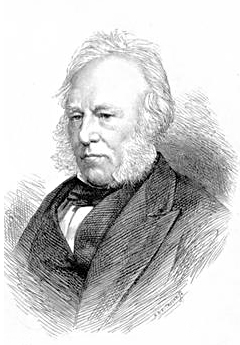The Project was contacted by the owner of an important Darwin letter that contains a rare instance of the key expressions "natural selection" and "struggle for existence" in correspondence. The letter was addressed to Thomas Rivers, a nurseryman in Hertfordshire and a leading authority on roses and fruit trees. Darwin initiated the correspondence in 1862 in a typically modest and apologetic manner: "My name may possibly be known to you …" "several times I thought I would write … but did not know whether you would think me too intrusive" (23 and 28 December [1862]). Darwin was always conscious of the pressure of time upon his correspondents who were in trades or professions, and who lacked the independent means that he possessed as a wealthy gentleman. He was extremely grateful for the contact, remarking that he had read "every scrap" that Rivers had written. Darwin quickly grew bolder with his inquiries:
I have little compunction for being so troublesome,-not more than a grand Inquisitor has in torturing a Heretic-for am I not doing a real good public service in screwing crumbs of knowledge out of your wealth of information? (11 January [1863])
Rivers and Darwin eventually exchanged around 30 letters, most falling in 1863, when Darwin was hard at work on the manuscript of Variation of plants and animals under domestication, the lengthy and detailed sequel to Origin of species. Rivers, an experienced plant breeder and hybridist, supplied Darwin with detailed information about bud variation in fruit trees, strawberries, roses, and laburnum, and the effects of grafts upon root stock. When he first read Origin, Rivers was led to consider the growth of trees over several years: how a patch of young seedlings began all equal, but in succeeding years was dominated by a few that grew taller or rooted more deeply, outstripping the others. "You should live near a large nursery & your mind would find abundance of food", Rivers wrote ([3 February 1863]). Darwin thought the example illustrated his evolutionary principles perfectly:
What you say of seedlings conquering each other well illustrates the "struggle for existence" & "natural selection". I have often & often looked at a crowd of natural seedlings with just such feelings & reflexions as yours.- ([14 February 1863])
Darwin's letter also thanks Rivers for information on the transmission of characters in weeping ash and thorn trees: "it is Capital for my Purpose". When this letter was first published in volume 11 of the Correspondence, our transcription was based on the entry in an auctioneer's catalogue. The Project is very grateful to the owner for making images of this important letter available to us so that we can confirm the accuracy of the transcription against the original. A number of Darwin letters remain in private hands, and we are indebted to these individuals, some of whom wish to remain anonymous, for appreciating the public value of this material and making it accessible through our complete edition.
When Darwin eventually finished Variation in 1868, he acknowledged Rivers many contributions and powers of observation. Rivers, then in his 70s, had turned the nursery business over to his son. In his last letter to Darwin he confesses himself "an idle man", though retaining his interest in experimental horticulture: "I am thankful for the prosperity I have long enjoyed" (29 March 1872).
ODNB article: https://doi.org/10.1093/ref:odnb/23690



